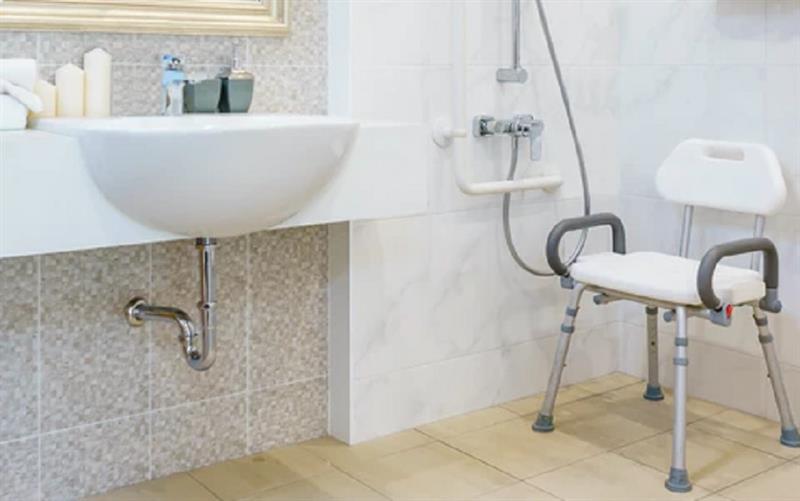
Ensuring the safety and comfort of a loved one with mobility issues during daily routines is a primary priority for caregivers and family members, particularly when it comes to bathing. Showering can be hazardous in addition to being challenging due to slick surfaces, exhaustion, or balance problems. A thoughtfully selected shower chair can offer comfort, security, and independence.
This thorough guide will assist you in selecting the ideal shower chair for the requirements of your loved one.
Making a loved one's everyday activities safer, more comfortable, and easier to access is frequently a part of providing care. Bathing is one place that might be very difficult. Weariness, poor balance, slippery flooring, or restricted mobility all make a straightforward shower dangerous. A shower chair can be very helpful in this situation.
With safety, comfort, and dignity in mind, this comprehensive guide will assist you in selecting the ideal shower chair for your loved one, regardless of your level of experience providing care.
Why a Shower Chair Matters
Although taking a bath should be a safe and soothing pastime, it can become unpleasant or even dangerous for those who have mobility challenges. Because they offer a firm seat, shower chairs lower the chance of slipping and falling in damp conditions. However, their advantages extend well beyond security:
- Encourages Independence: When a chair is available, some people can bathe without help.
- Reduces Caregiver Stress: It's dangerous to lift or hold someone in a slick shower; using a chair makes the situation safer for everyone.
- Aids in Recovery: Sitting down to take a bath after surgery or an injury helps relieve pressure on the healing areas.
- Confidence-Boosting: Shower chairs provide a safe space that promotes consistent hygiene without worry or dread.
Types of Shower Chairs
1. Standard Shower Chair
Usually composed of plastic with drainage holes and legs made of steel or aluminum, this sturdy seat has a backrest. For added assistance, certain versions come with armrests.
Ideal for:
- Elderly people who can sit up straight without any help
- Users recuperating from minor medical procedures or ailments
- People who require security but prefer to bathe alone
Qualities:
- Backrest for support and comfort
- Legs that can be adjusted to accommodate varying heights
- Some variants are foldable for storing.
2. Shower Stools
These little, backless stools are made for people who require little assistance.
Ideal for:
- Those with good balance but less endurance
- Users in cramped areas or with smaller shower cubicles
- Traveling or using it sometimes
Qualities:
- Lightweight and portable
- Most models provide height adjustment.
- Possibly seats that can be turned to make turning easier.
3. Rolling Shower Chairs (Shower Wheelchairs)
These have brakes, caster wheels, and frequently a commode opening. made for people who require help getting in and out of the shower.
Ideal for:
- Wheelchair users
- People in need of caregiver support
- Use in roll-in or barrier-free showers
Qualities:
- Wheels that can be locked for safety
- May have footrests, soft chairs, and seat belts.
- Both a shower chair and a transport chair
4. Transfer Benches
a long seat that crosses the wall of the tub. After taking a seat outside the tub, the user moves to the inside.
Ideal for:
- People who have trouble climbing over tub walls
- Individuals recuperating from back, leg, or hip surgery
- People who have serious problems with their coordination or balance
Qualities:
- One side's legs were extended to sit outside the tub.
- Supporting armrests and a backrest
- Rubber non-slip feet or suction cups
5. Reclining / Tilt-in-Space Shower Chairs
chairs with high support that can be adjusted to tilt or recline backward. frequently employed in long-term care or medical settings.
Ideal for:
- People with severe disabilities
- Patients who are not bearing weight
- Individuals suffering from neurological disorders, such as cerebral palsy or paralysis
Qualities:
- Seat tilt and back recline
- Combined leg support and headrest
- Safety harnesses and modifications managed by caregivers
6. Foldable Shower Chairs
A portable, folding chair or stool that is ideal for short-term or travel use.
Ideal for:
- Occasionally used
- Multi-user or shared restrooms
- Individuals who travel regularly
Qualities:
- Flattens out for convenient storing
- lightweight frame
- Backrests and armrests might still be present.
7. Bariatric Shower Chairs
Heavy-duty, extra-wide chairs designed for people who want more room and greater weight capacities.
Ideal for:
- People who weigh more than 300 pounds
- Wider seating is necessary for users' comfort and safety.
Qualities:
- Reinforced frame (usually capable of supporting 500–600 lbs.)
- Broad backrest and seat
- Heavy-duty, non-slip feet
8. Wall-Mounted Fold-Down Shower Seats
Seats that fold up when not in use are permanently mounted on the shower wall.
Ideal for:
- People who don't have enough room in the shower
- Houses undergoing accessibility renovations
- Preferences for minimalist design
Qualities:
- Firmly attaches to the wall
- Armrests and backrests are possible.
- Available in plastic or cushioned varieties